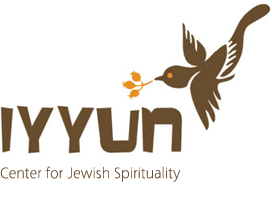The word teshuvah is normally translated as “repentanceâ€, yet teshuvah does not mean “repentanceâ€, rather it means ‘turning around’, or ‘returning to our Divine Source,’ as it says, “Return to Hashem Elokecha (your G-d).†In order to understand what the Torah means by the word teshuvah, many teachers have looked for an acronym in its letters.
The Ari, R. Yitzchak Luria writes that teshuvah is an acronym for these spiritual tools:
Taanis– fasting
Sak – (wearing) sack cloth
V’eifer – (placing) ashes on one’s head
Bechia – wailing
Hesped – moaning
The Chida, R. Chaim Yoseph David Azulai writes that teshuvah is an acronym for
Torah – study of Torah
Shabbas- keeping the Shabbas
Viddui – verbal confession
Busha – bashfulness
Hachna’ah – humility.
R. DovBer, the Magid of Metzrich taught that “You shall return to Hashem Elokecha†means turn to Hashem–the Transcendent One–until transcendence becomes Elokecha–the immanent power to which you personally relate and resonate. In other words, ‘You shall become aware that That which is beyond nature is also your own nature.’
How do we accomplish such profound change within ourselves? In order to do so, we must first believe we can. Our greatest obstacle and adversary is our limited self–when it comes to change, we often get in our own way. In order to step out of the way, we must place “Elokecha†or “Elokim†upon ourselves. “Elokim†alludes to Tzim-tzum, the Creators Self-constriction, finite, limitation. Therefore, we trade our self-limitation for Divine Self-limitation. Since Tzim-tzum is ultimately not real–G-d is not actually limited in any way–our limited nature has become one with the essential, unlimited Divine Infinite nature.
After the Maggid gave this teaching, his beloved student, Reb Zusya of Anipoli, said that the word teshuvah is an acronym for five sacred verses that help us open our whole selves to the Transcendent One:
T: Tamim – “Be sincere with Hashem your G-d.” (Devarim, 18:13)
Sh: Shivisi – “I have set Hashem before myself continuously.” (Tehillim, 16:8)
U: V’ahavta – “Love your fellow as yourself.” (Vayikra, 19:18)
V: B’chol – “In all your ways, know Him.” (Mishlei, 3:6)
H: Hatznei’a – “Walk discreetly with your G-d.” (Micha, 6:8)
Let us delve a bit deeper into these five verses and understand the process of teshuvah more fully:
The five verses suggest a precise map for deep teshuvah. There are five levels of the soul, so we can use each verse to progressively unshackle and expand higher levels of soul-constriction.
The fifth and highest level of the soul does not experience even a shadow of limitation, so we will only speak of the four lower levels of the soul, in ascending order. We will investigate the constrictions of each level, and also the remedies–the ‘paths of return’ for each.
FOUR LEVELS OF SOUL-CONSTRICTION
1) NEFESH/ PHYSICAL:
Physical limitations appear when we believe we cannot change because it’s not in the ‘stars.’
We imagine there are physical forces, such as our genes, body energy or lack thereof that make any real movement impossible.
2) RU’ACH/ EMOTIONAL:
Emotional limitations appear when we are emotionally affected by the negative criticism of others.
We internalize feelings of weakness or unworthiness, and believe we are incapable of being more.
3) NESHAMA/ INTELLECTUAL:
Intellectual limitations appear when our own thoughts and analyses get in the way of return.
Here you yourself begin thinking that you are unworthy and incapable of any greatness.
4) CHAYA/ EXISTENTIAL:
‘Wholistic’ or existential limitations appear when, on a supra-rational level, we believe that the whole context of our lives is limited. When, we believe that the structure of reality itself is limited, whether it is because of our nature or nurture, and thus being one with our deepest nature seems ultimately impossible.
FOUR LEVELS OF TESHUVAH
1)
The remedy for physical limitation is the first letter of the acronym: Tamim, ‘sincerity in action.’ The Talmud (Pesachim) says that one shouldn’t pay attention to star gazers, but be tamim. This means we shouldn’t believe we are bound by mazal, luck, or the world of causality; cause and effect. “Be tamim†means, ‘be whole, present, and focused.’ Simplify your life by focusing on Hashem, rather than on lesser sources of guidance.
Teshuvah demands Tamimus –serious focus and sincerity, but this should not be confused with bitterness or heaviness. To make teshuvah via ‘tamim’ is to be ourselves–more alive, more whole and empowered. Teshuvah is not supposed to be a terrifying experience, reducing the person to feel insignificant and guilt ridden, rather, it is to be redeeming, reenergizing and rejuvenating. The pinnacle of teshuvah is attained when we attain a level of wholeness and a healthy sense of being fully alive.
When we are sincerely focused on our purpose and we make Hashem our “Elokecha,†and we are released from limitations within the level of nefesh.
2)
The remedy for emotional limitation is the second letter, corresponding to Shivisi, ‘placing Hashem before oneself. ’The word shivisi alludes to histavus, ‘equanimity.’ When we are emotionally equanimous, we don’t react negatively to criticism, because we don’t feel it can limit us. Any input arising before us is felt to be the input of the Transcendent. There is then no obstruction before the ruach, and there is a free flow of our emotions as our soul returns to her infinity.
3)
The remedy for intellectual limitation is symbolized by the letter U: V’ahavta, ‘Love your fellow as yourself.’ From this verse we see that love must begin with self-care, but it must also extend outward to others–first to the people closest to us, then to our wider family, community, and world. Extending and expanding ourselves through loving action gets us out of our heads, and breaks our limited mental judgments of other people. This verse concludes, “Ani Hashemâ€, ‘I (G-d) am the Transcendent Infinite One.’ In other words, we must love ourselves and others simply because we are each part of Hashem. This is the unifying vision, the soul-perspective that comes from the teshuvah on the level of thinking – neshama. *
“As yourself†in Hebrew is Ka’mocha which in numeric value is 86; Chof/20 mem/40 vav/6 chof/20= 86. The Name Elokim the Divine Self-limitation is also numerically 86, as is the word for nature. So what begins as our own limited nature and as self love, “as yourself†expands into a paradigm of Ani Hashem – I am the Infinite One, coming from a soul perspective of Unity.
4)
The remedy for ‘wholistic’ or existential limitations is symbolized by the letter V: B’chol – “In all your ways, know Him.†“In all…know†suggests the comprehensive awareness called da’as elyon, ‘higher knowing’. This is also our alignment with the total context of reality; it is the lens through which we view the whole of our life. The chaya level of soul is the totality of who we are. If we are constricted on this level, we are not aligned with our existential freedom. When we turn and align our da’as with ‘Him,’ Hashem, our whole existence resonates with the frequency of the Infinite. Our greater context is not limited, confined or constricted and it is completely open to the Transcendent.
The final letter of the word teshuvah is H, standing for Hatznei’a – ‘walking discreetly with Hashem’. To be private, or alone, with the Transcendent, is to be one with the One. This is the essence of ‘returning’: realizing that ultimately, we never left, and there is nowhere to go.
May this Yom Kippur truly inspire genuine Teshuvah on all levels of being, physically, emotionally, mentally and existentially.
*The Mitzvah to love is to “act†lovingly. Rambam Hilchas Aveilus. Chap 14. Safer Ha’Chinuch Mitzvah 243. In the words of the Ramban “It does not register upon the heart of man to love his friend as he loves himself†Ramban. Vayikra 19: 17. Yet, elsewhere the Rambam suggest that it’s a Mitzvah to “feel love.†Safer Ha’Mitzvos. Mitzvah 66. The feelings comes through the intellect, the meditation. As the Abarbanel writes with regards to the Mitzvah of loving Hashem. Rosh Emuna. And these two loves are interconnected, in the words of the Recanti “ To love man who is created with the image of God is to love God.†Rabbi Menachem Recanti. Parshas Kedoshim. p. 27b.







